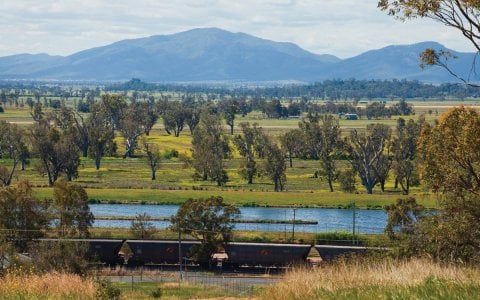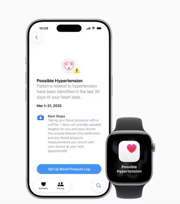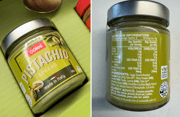River's troubling results flow into new concerns: Aussie residents’ water quality in hot water
- Replies 11
Recent water testing in an Aussie river has raised significant concerns among residents and environmental experts.
The tests have revealed the presence of harmful elements, prompting calls for immediate action to address potential health risks and environmental impacts.
Authorities are now investigating the sources of contamination and working on strategies to ensure the safety and quality of the river's water supply.
The discovery of metals and pesticides in the Namoi River has raised serious concerns among the residents of Walgett, New South Wales, particularly the Indigenous community, who rely on this water source for their daily needs.
The Dharriwaa Elders Group (DEG), troubled by the health of the river and the fish within it, took the initiative to partner with Charles Sturt University (CSU) for independent testing.
DEG treasurer Rick Townsend expressed concern among group members regarding the health of the Namoi River, noting that they have recently caught several fish with sores on their bodies.
‘We believe that the water isn't safe to drink…and we are afraid [the fish] are not safe to eat,’ he stated.

The preliminary results, which have yet to undergo peer review, revealed the presence of a number of different pesticides and elevated levels of metals.
The testing focused on evaluating the health of the river's ecosystem rather than determining the water's potability.
Until last year, residents relied solely on bore water after the Namoi River ran dry in 2018. The river resumed providing drinking water to around 7,000 people in the Walgett Shire last year through a council-operated reverse osmosis plant.
However, the NSW Department of Climate Change, Energy, the Environment, and Water has confirmed that due to staffing shortages, the plant is currently inactive, and the town has reverted to using bore water.
The Walgett Shire Council assured that both the treated river water and bore water are safe to drink.
The council's General Manager, Megan Dixon, stated that managing water utilities and infrastructure falls within the local government's responsibilities.
‘However, management of river water quality sits squarely with WaterNSW,’ she said.
‘Councils have reason for concern about river water quality as they extract raw water from these rivers before it is treated for human consumption.’
‘Walgett Shire Council has established relationships with all government agencies and continuously advocate for support and improvements on behalf of the community,’ Ms Dixon added.
CSU scientist Katie Doyle, who was part of the team analysing the lab results, stated that the water quality of the river will need ongoing monitoring in the future.
‘The total [amounts of] phosphorus and nitrogen were reasonably high in the river system,’ Dr Doyle pointed out.
‘We also found a few metals in the water were higher than expected — aluminium and copper in particular.’
The testing also detected six different pesticides in the water.
The report highlighted that three of these pesticides—atrazine, diuron, and a blend of S and R-metolachlor—are banned in the European Union but not in Australia.
Dr Doyle remarked that finding these chemicals outside the spraying season was unusual.
‘That's a really good indicator to go back and have a look at it and see during spring season whether we find higher amounts in the water or not,’ she explained.
Dr Doyle also mentioned that while the results did not provide a conclusive answer about its safety for consumption, she would not personally opt to drink water from the river.
During the Budget Estimates, Greens MLC Cate Faehrmann questioned NSW Water Minister Rose Jackson about the water quality in Walgett.
Ms Jackson replied that she was not acquainted with the research conducted by the DEG and CSU, and added that river water testing falls outside the scope of the state government's responsibilities.
‘It's not something that WaterNSW would do,’ she said.
‘As the river operator, they are not really responsible for that.’
‘If the water from the Namoi River is also problematic, well, we are in a little bit of a pickle here,’ Ms Jackson continued.
She stated that the Walgett Shire Council is responsible for ‘the provision of drinking water, the testing of that drinking water [and] assurances that it is within drinking water guidelines’.
DEG member Zoe Sands said the group felt compelled to act independently because it was unable to locate any historical testing results.
‘We are unhappy with the government's response to our requests about Walgett's water,’ she remarked.
‘That is why we felt we had to do this water sampling work ourselves.’
The concerns about water quality in Walgett's Namoi River highlight a growing issue affecting various regions across Australia.
Similarly, a recent shutdown of a key water source in the Blue Mountains has drawn attention to the broader problem of ‘forever chemicals’ contaminating Australian water supplies.
Both situations underscore the urgent need for effective monitoring and remediation strategies to ensure the safety of our water resources.
 Have you ever had concerns about the quality of your water supply? How did you address them? Share your experiences and thoughts in the comments below, and let's discuss the importance of clean water and the steps we can take to protect this vital resource.
Have you ever had concerns about the quality of your water supply? How did you address them? Share your experiences and thoughts in the comments below, and let's discuss the importance of clean water and the steps we can take to protect this vital resource.
The tests have revealed the presence of harmful elements, prompting calls for immediate action to address potential health risks and environmental impacts.
Authorities are now investigating the sources of contamination and working on strategies to ensure the safety and quality of the river's water supply.
The discovery of metals and pesticides in the Namoi River has raised serious concerns among the residents of Walgett, New South Wales, particularly the Indigenous community, who rely on this water source for their daily needs.
The Dharriwaa Elders Group (DEG), troubled by the health of the river and the fish within it, took the initiative to partner with Charles Sturt University (CSU) for independent testing.
DEG treasurer Rick Townsend expressed concern among group members regarding the health of the Namoi River, noting that they have recently caught several fish with sores on their bodies.
‘We believe that the water isn't safe to drink…and we are afraid [the fish] are not safe to eat,’ he stated.

Independent testing by the Dharriwaa Elders Group and Charles Sturt University found metals and pesticides in the Namoi River, which provides drinking water to the Walgett community. Credit: NSW Government Water
The preliminary results, which have yet to undergo peer review, revealed the presence of a number of different pesticides and elevated levels of metals.
The testing focused on evaluating the health of the river's ecosystem rather than determining the water's potability.
Until last year, residents relied solely on bore water after the Namoi River ran dry in 2018. The river resumed providing drinking water to around 7,000 people in the Walgett Shire last year through a council-operated reverse osmosis plant.
However, the NSW Department of Climate Change, Energy, the Environment, and Water has confirmed that due to staffing shortages, the plant is currently inactive, and the town has reverted to using bore water.
The Walgett Shire Council assured that both the treated river water and bore water are safe to drink.
The council's General Manager, Megan Dixon, stated that managing water utilities and infrastructure falls within the local government's responsibilities.
‘However, management of river water quality sits squarely with WaterNSW,’ she said.
‘Councils have reason for concern about river water quality as they extract raw water from these rivers before it is treated for human consumption.’
‘Walgett Shire Council has established relationships with all government agencies and continuously advocate for support and improvements on behalf of the community,’ Ms Dixon added.
CSU scientist Katie Doyle, who was part of the team analysing the lab results, stated that the water quality of the river will need ongoing monitoring in the future.
‘The total [amounts of] phosphorus and nitrogen were reasonably high in the river system,’ Dr Doyle pointed out.
‘We also found a few metals in the water were higher than expected — aluminium and copper in particular.’
The testing also detected six different pesticides in the water.
The report highlighted that three of these pesticides—atrazine, diuron, and a blend of S and R-metolachlor—are banned in the European Union but not in Australia.
Dr Doyle remarked that finding these chemicals outside the spraying season was unusual.
‘That's a really good indicator to go back and have a look at it and see during spring season whether we find higher amounts in the water or not,’ she explained.
Dr Doyle also mentioned that while the results did not provide a conclusive answer about its safety for consumption, she would not personally opt to drink water from the river.
During the Budget Estimates, Greens MLC Cate Faehrmann questioned NSW Water Minister Rose Jackson about the water quality in Walgett.
Ms Jackson replied that she was not acquainted with the research conducted by the DEG and CSU, and added that river water testing falls outside the scope of the state government's responsibilities.
‘It's not something that WaterNSW would do,’ she said.
‘As the river operator, they are not really responsible for that.’
‘If the water from the Namoi River is also problematic, well, we are in a little bit of a pickle here,’ Ms Jackson continued.
She stated that the Walgett Shire Council is responsible for ‘the provision of drinking water, the testing of that drinking water [and] assurances that it is within drinking water guidelines’.
DEG member Zoe Sands said the group felt compelled to act independently because it was unable to locate any historical testing results.
‘We are unhappy with the government's response to our requests about Walgett's water,’ she remarked.
‘That is why we felt we had to do this water sampling work ourselves.’
The concerns about water quality in Walgett's Namoi River highlight a growing issue affecting various regions across Australia.
Similarly, a recent shutdown of a key water source in the Blue Mountains has drawn attention to the broader problem of ‘forever chemicals’ contaminating Australian water supplies.
Both situations underscore the urgent need for effective monitoring and remediation strategies to ensure the safety of our water resources.
Key Takeaways
- Independent testing by the Dharriwaa Elders Group and Charles Sturt University revealed metals and pesticides in the Namoi River, which supplies drinking water to the Walgett community.
- Preliminary results have raised concerns about the health of the river ecosystem, as well as the safety of the drinking water and local fish.
- Walgett Shire Council asserted that the drinking water, sourced from both the river and bore water, is safe to consume.
- There is a call for ongoing monitoring of the river's water quality, with some substances found at higher than expected levels and pesticides detected outside of the usual spraying season.







